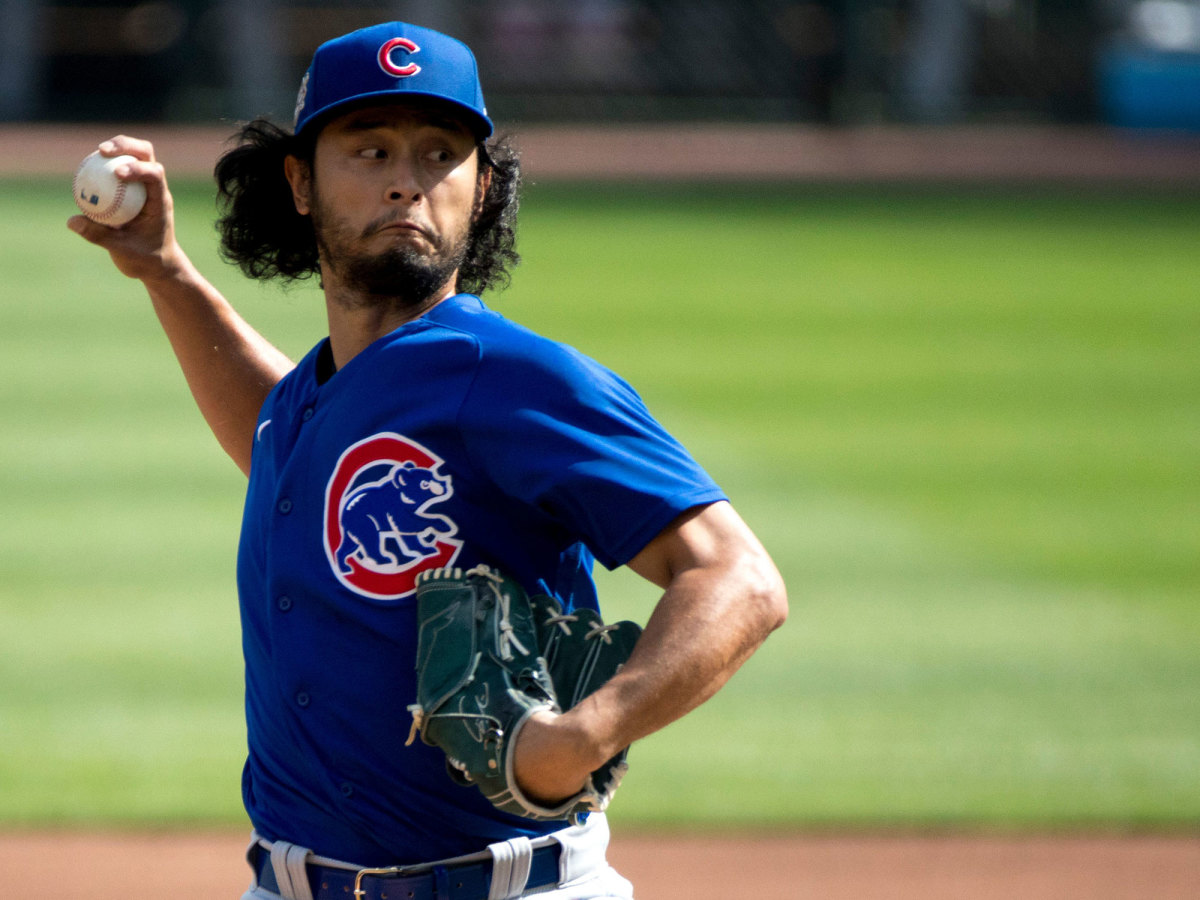Yu Darvish Trade Grades: What Are the Cubs Doing?
Roughly 24 hours after trading for 2018 AL Cy Young winner Blake Snell, the San Diego Padres reportedly agreed to a deal with the Chicago Cubs for ace righthander Yu Darvish. If it wasn't already clear, the trade makes the Padres one of the best—and most fun—teams in baseball. In return, the Cubs get right-handed starter Zach Davies and four prospects. Let’s grade the trade.
The Deal
Padres acquire: RHP Yu Darvish, C, Victor Caratini
Cubs acquire: RHP Zach Davies, SS Reginald Preciado, SS Yeison Santana, OF Owen Caissie, OF Ismael Mena
Full trade details per MLB.com's Mark Feinsand and other reports.
Grading San Diego’s side of the deal
This trade could not have gone better for the Padres. It’s no secret that Darvish has some of the best stuff in baseball; the problem has been staying healthy. Arm injuries derailed his first season with the Cubs after he signed a six-year, $126 million deal before the 2018 season. However, since the 2019 All-Star break, Darvish ranks fourth among starting pitchers with a 2.40 ERA and 5.4 fWAR.
The obvious takeaway is how much better adding Darvish makes San Diego’s rotation, and not just in 2021. Darvish, Blake Snell and Dinelson Lamet are all under contract through 2023. Mike Clevinger, who had Tommy John surgery in November, should be ready for the 2022 season. Meanwhile, top prospect MacKenzie Gore is expected to be be ready at some point this year.
Victor Carantini was included in this trade in part because he’s become Darvish’s personal catcher. But the switch-hitter has also been a productive player, posting a 105 OPS+ and hitting 11 home runs in 2019 while backing up All-Star Willson Contreras.
The most remarkable part of this trade for the Padres is they didn’t have to give up any of their top 10 prospects (per MLB.com’s most recent rankings).
They had to absorb the cost of Darvish’s contract, but that’s a small price to pay if he can pitch them to the pennant. San Diego didn’t have to dismantle its farm system to get its second ace in as many days.
Grade: A

Grading Chicago’s side of the deal
In November, when Cubs owner Tom Ricketts told reporters, "I don't think anybody's tearing anything down," he must’ve been talking about Wrigley Field and not his roster. Jed Hoyer’s first trade as Cubs GM without Theo Epstein is not an encouraging one for those hoping this team wouldn’t blow up its chances of winning over the next year or two. We all knew the Cubs were in transition, and we knew they would trade away a star or two this offseason to replenish their farm system. But this trade doesn’t accomplish that.
Other than serving as a cost-cutting measure, this trade makes little sense for Chicago. The Padres have four players ranked among MLB.com’s top 100 overall prospects, and the Cubs couldn’t work out a deal to get at least one of them for Darvish, who FanGraphs ranked the third best starting pitcher in baseball last year.
Look at the package the Rays got in return for trading Blake Snell just a day before the Darvish deal. Tampa Bay received right-handed starters Luis Patiño (No. 3 in San Diego’s system, per MLB.com) and righthander Cole Wilcox (No. 7), along with two catchers: Francisco Mejía, once a top prospect, and Blake Hunt. Say what you want about the Rays being a shrewd, unfun organization; trading away a fan favorite is never fun. But at least they got a valuable return for Snell. Then there's Darvish, who is better than Snell. It’s a hard sell for the Cubs to trade him away and get less in return. This is a thinly veiled salary dump for a player who was worth more than every penny they paid him last year.
That isn’t to say the four prospects the Cubs acquired aren’t going to be productive big leaguers. All four of them ranked among the top 20 in the Padres system and have varying degrees of upside. It’ll be at least a few years before we know for sure how this trade will turn out for Chicago.
The only consolation for the Cubs is Davies, a good right-handed pitcher who can slot behind Kyle Hendricks in the rotation. In 2021, that could be enough to pretend to field a competitive team in a relatively unremarkable NL Central.
Bottom line: The Padres acquired a(nother) top pitcher and emerged as a clear World Series contender while the Cubs have to wait and see what happens with their quartet of new prospects in a division that's incredibly winnable right now.
Grade: D-
